Lexicology as a Branch of Linguistics. Lexical Units

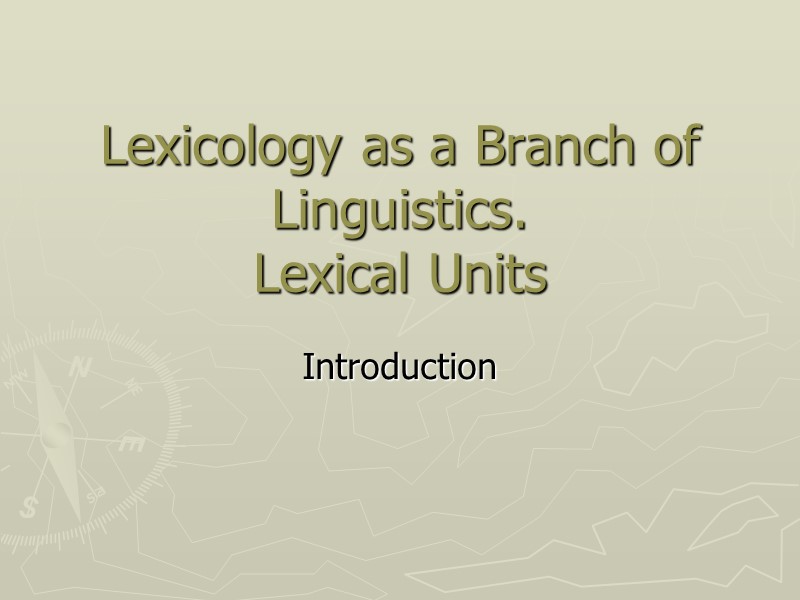
Lexicology as a Branch of Linguistics. Lexical Units Introduction
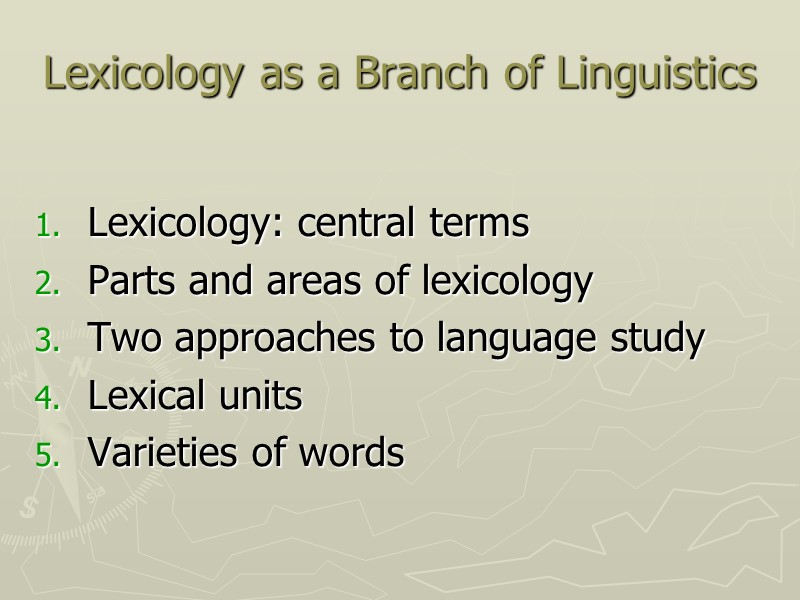
Lexicology as a Branch of Linguistics Lexicology: central terms Parts and areas of lexicology Two approaches to language study Lexical units Varieties of words
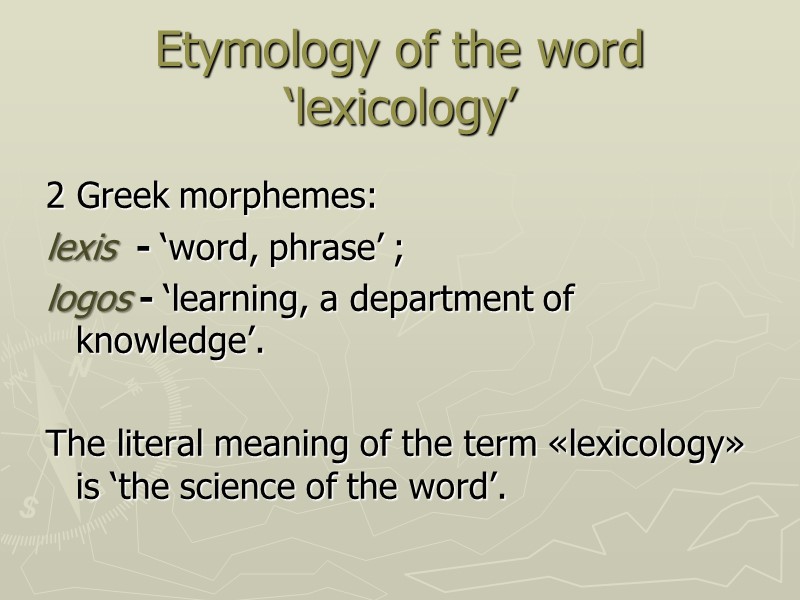
Etymology of the word ‘lexicology’ 2 Greek morphemes: lexis - ‘word, phrase’ ; logos - ‘learning, a department of knowledge’. The literal meaning of the term «lexiсolоgу» is ‘the science of the word’.
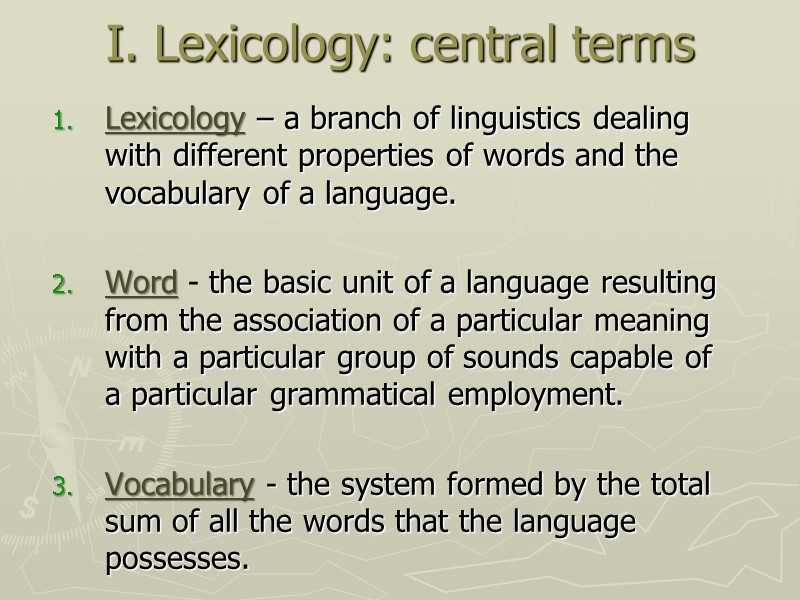
I. Lexicology: central terms Lexicology – a branch of linguistics dealing with different properties of words and the vocabulary of a language. Word - the basic unit of a language resulting from the association of a particular meaning with a particular group of sounds capable of a particular grammatical employment. Vocabulary - the system formed by the total sum of all the words that the language possesses.
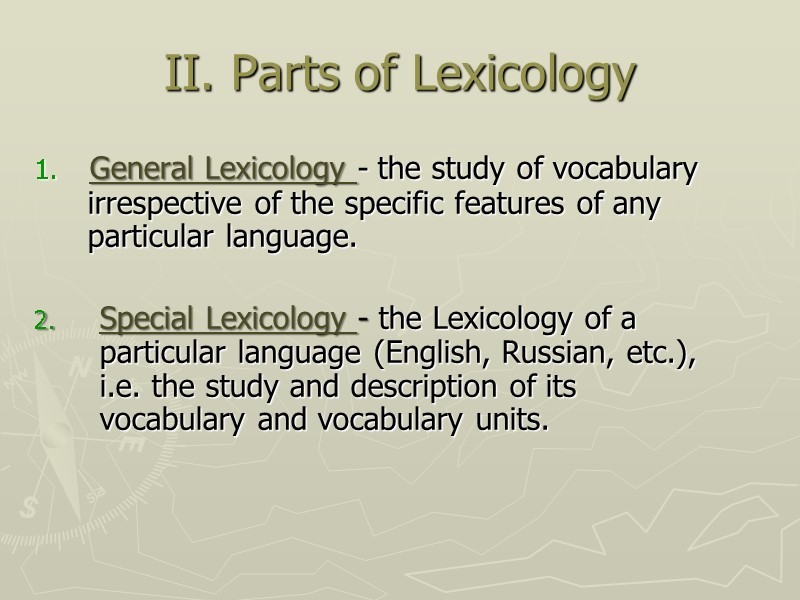
II. Parts of Lexicology General Lexicology - the study of vocabulary irrespective of the specific features of any particular language. Special Lexicology - the Lexicology of a particular language (English, Russian, etc.), i.e. the study and description of its vocabulary and vocabulary units.
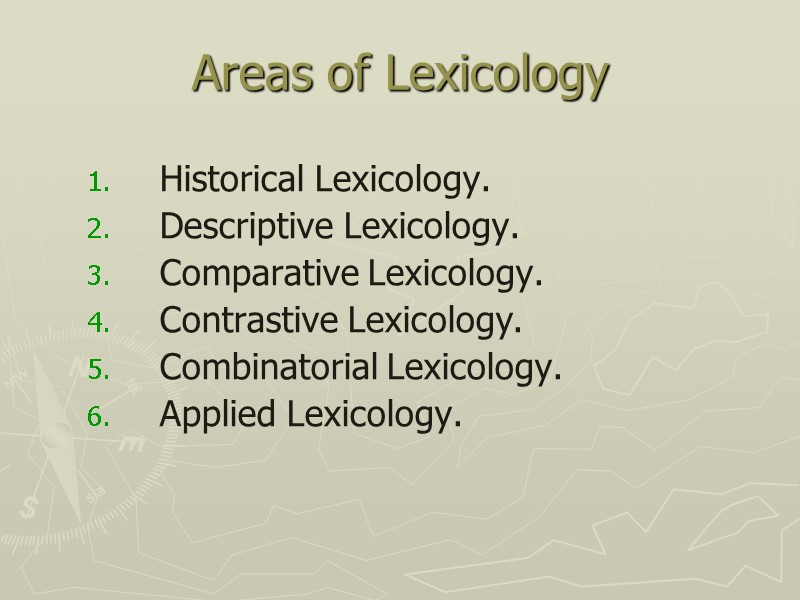
Areas of Lexicology Historical Lexicology. Descriptive Lexicology. Comparative Lexicology. Contrastive Lexicology. Combinatorial Lexicology. Applied Lexicology.

Functional Approach stands out as describing how words are used in discourse to provide and support meaningful communication.
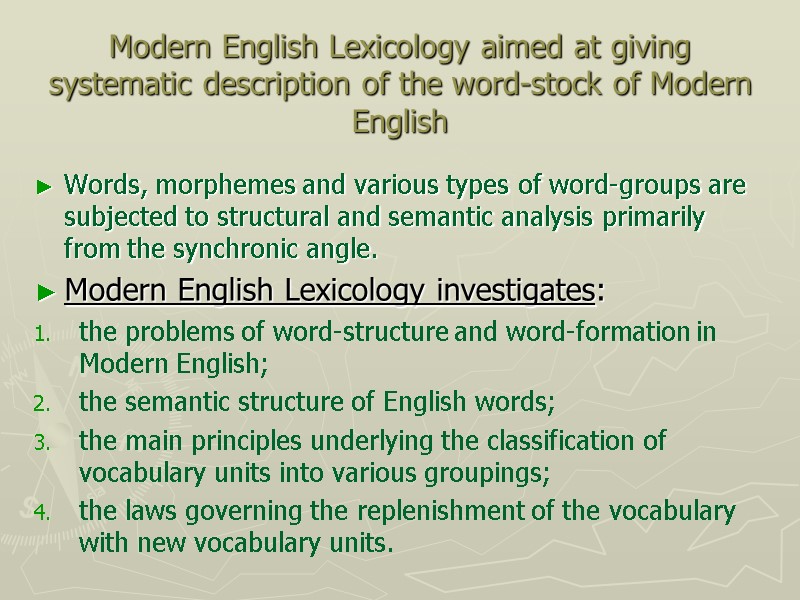
Modern English Lexicology aimed at giving systematic description of the word-stock of Modern English Words, morphemes and various types of word-groups are subjected to structural and semantic analysis primarily from the synchronic angle. Modern English Lexicology investigates: the problems of word-structure and word-formation in Modern English; the semantic structure of English words; the main principles underlying the classification of vocabulary units into various groupings; the laws governing the replenishment of the vocabulary with new vocabulary units.
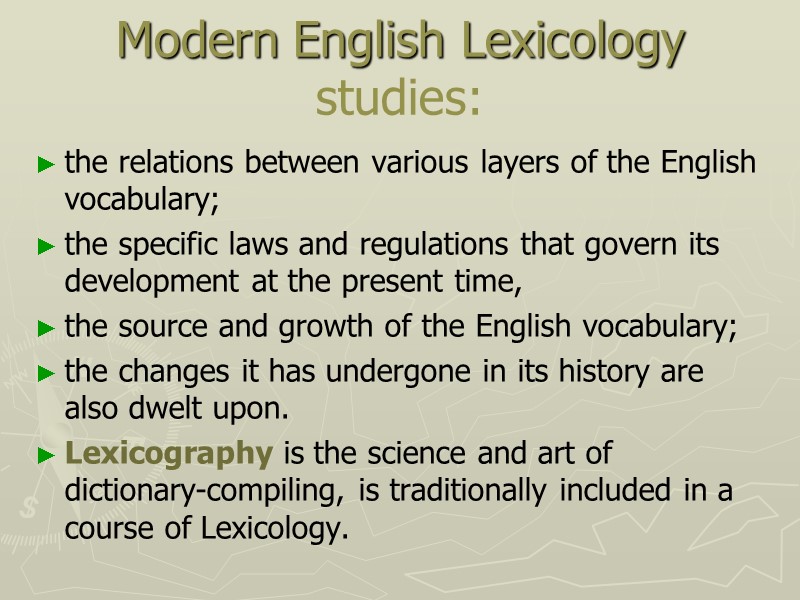
Modern English Lexicology studies: the relations between various layers of the English vocabulary; the specific laws and regulations that govern its development at the present time, the source and growth of the English vocabulary; the changes it has undergone in its history are also dwelt upon. Lexicography is the science and art of dictionary-compiling, is traditionally included in a course of Lexicology.
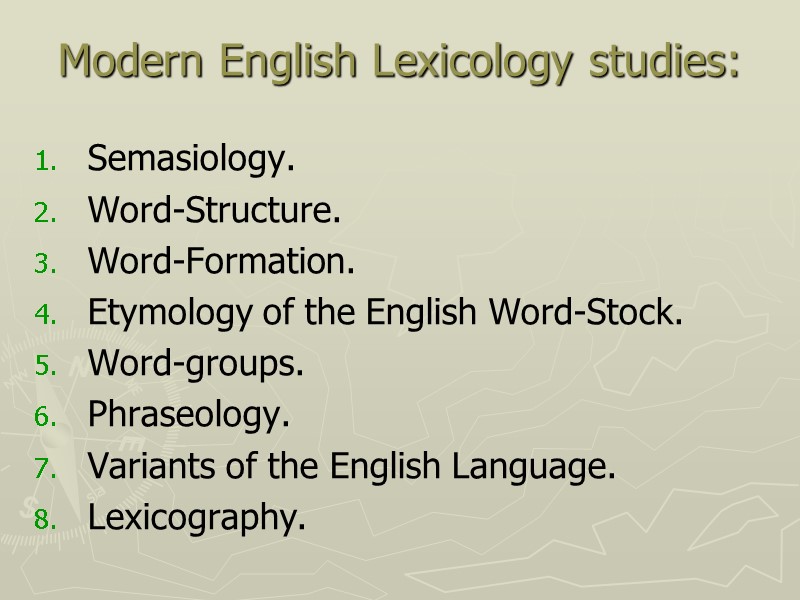
Modern English Lexicology studies: Semasiology. Word-Structure. Word-Formation. Etymology of the English Word-Stock. Word-groups. Phraseology. Variants of the English Language. Lexicography.
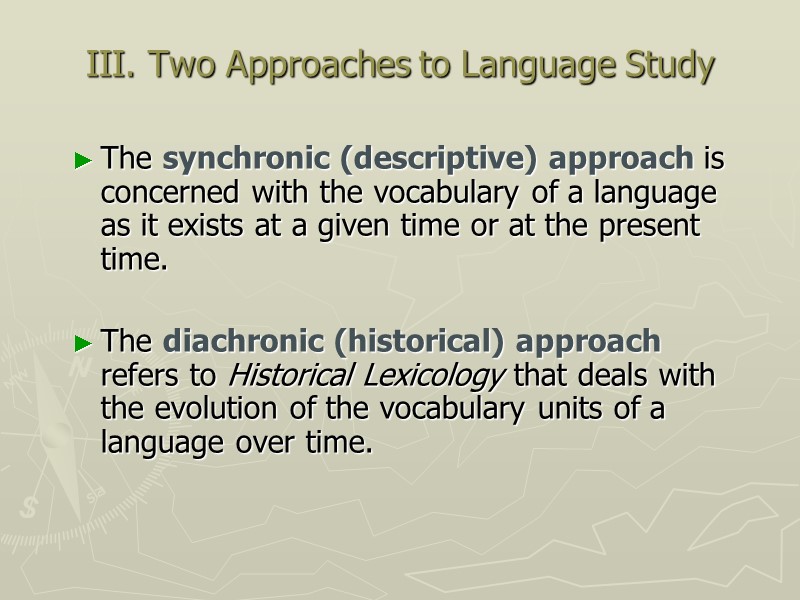
III. Two Approaches to Language Study The synchronic (descriptive) approach is concerned with the vocabulary of a language as it exists at a given time or at the present time. The diachronic (historical) approach refers to Historical Lexicology that deals with the evolution of the vocabulary units of a language over time.
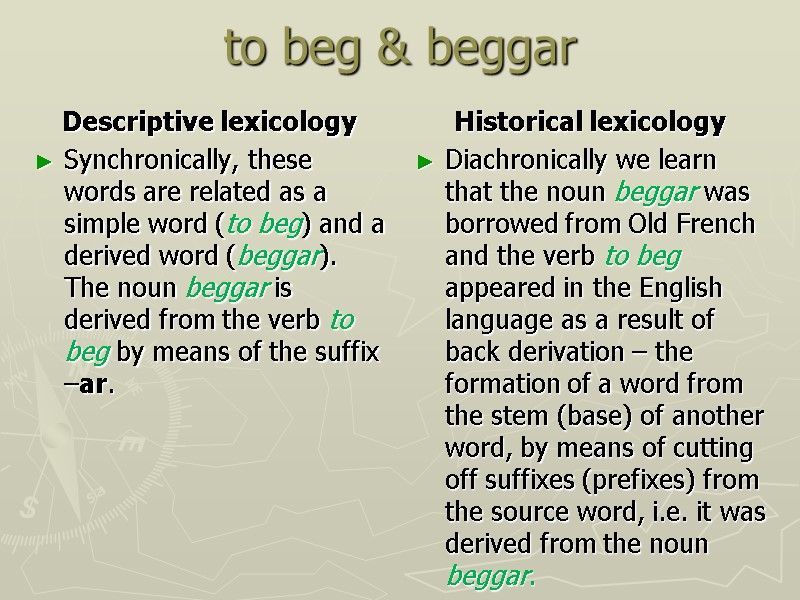
to beg & beggar Descriptive lexicology Synchronically, these words are related as a simple word (to beg) and a derived word (beggar). The noun beggar is derived from the verb to beg by means of the suffix –ar. Historical lexicology Diachronically we learn that the noun beggar was borrowed from Old French and the verb to beg appeared in the English language as a result of back derivation – the formation of a word from the stem (base) of another word, by means of cutting off suffixes (prefixes) from the source word, i.e. it was derived from the noun beggar.
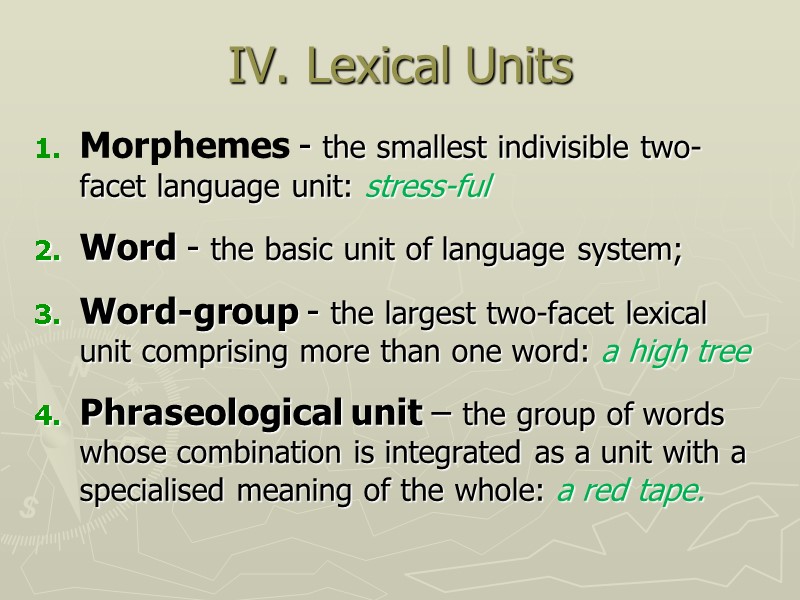
IV. Lexical Units Morphemes - the smallest indivisible two-facet language unit: stress-ful Word - the basic unit of language system; Word-group - the largest two-facet lexical unit comprising more than one word: a high tree Phraseological unit – the group of words whose combination is integrated as a unit with a specialised meaning of the whole: a red tape.
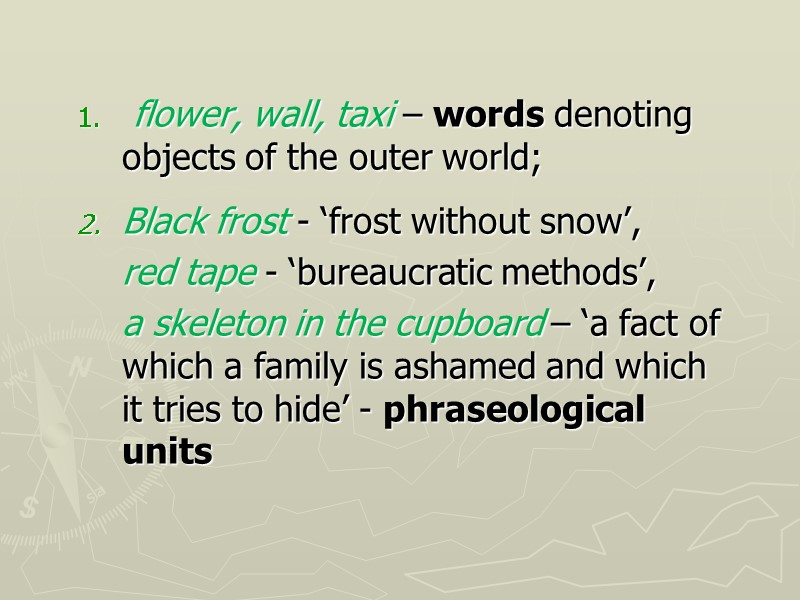
flower, wall, taxi – words denoting objects of the outer world; Black frost - ‘frost without snow’, red tape - ‘bureaucratic methods’, a skeleton in the cupboard – ‘a fact of which a family is ashamed and which it tries to hide’ - phraseological units
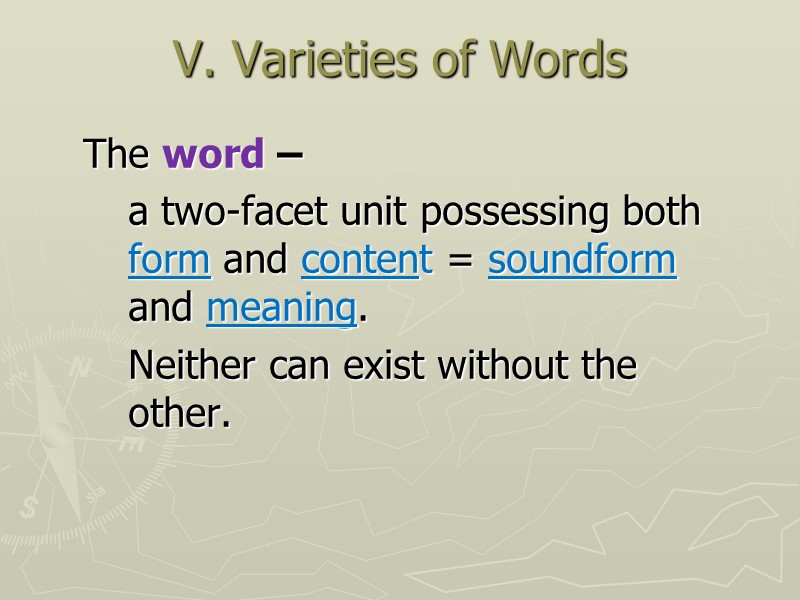
V. Varieties of Words The word – a two-facet unit possessing both form and content = soundform and meaning. Neither can exist without the other.
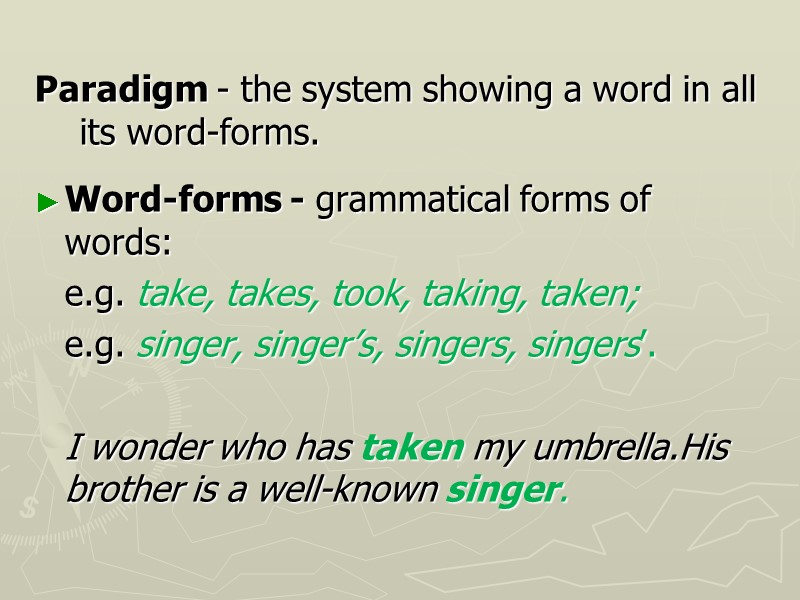
Paradigm - the system showing a word in all its word-forms. Word-forms - grammatical forms of words: e.g. take, takes, took, taking, taken; e.g. singer, singer’s, singers, singers’. I wonder who has taken my umbrella.His brother is a well-known singer.
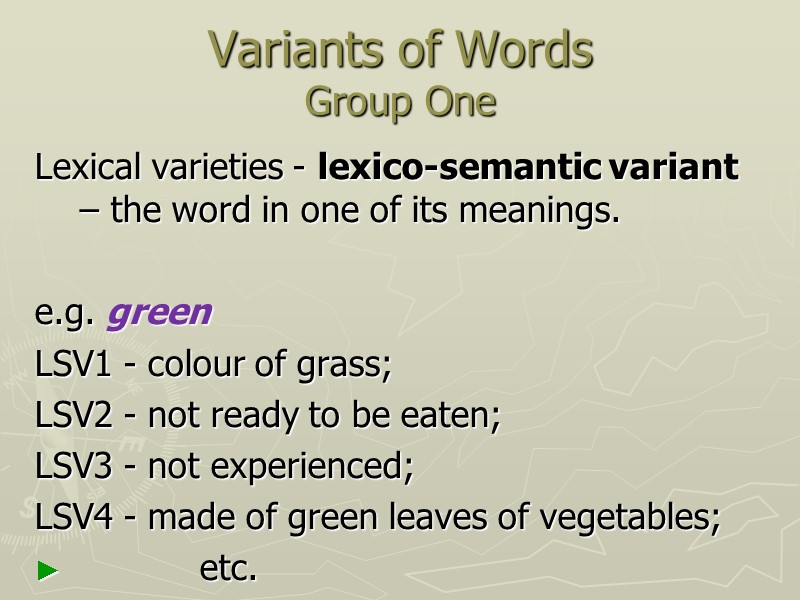
Variants of Words Group One Lexical varieties - lexico-semantic variant – the word in one of its meanings. e.g. green LSV1 - colour of grass; LSV2 - not ready to be eaten; LSV3 - not experienced; LSV4 - made of green leaves of vegetables; etc.
![Variants of Words Group Two phonetic variants: often [‘O:fn] and [‘O:fqn]; Variants of Words Group Two phonetic variants: often [‘O:fn] and [‘O:fqn];](https://present5.com/presentacii-2/20171213\36344-introduction_lexicology_as_a_part_of_linguistics.ppt\36344-introduction_lexicology_as_a_part_of_linguistics_18.jpg)
Variants of Words Group Two phonetic variants: often [‘O:fn] and [‘O:fqn]; again [ə’gein] and [ə’gen]. morphological variants: learned [-d] and learnt [-t]; geologic – geological, etc.
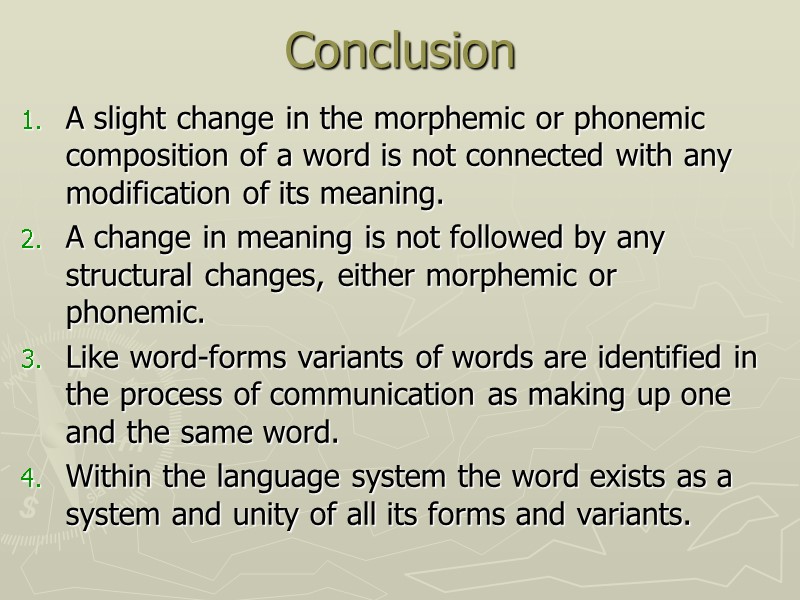
Conclusion A slight change in the morphemic or phonemic composition of a word is not connected with any modification of its meaning. A change in meaning is not followed by any structural changes, either morphemic or phonemic. Like word-forms variants of words are identified in the process of communication as making up one and the same word. Within the language system the word exists as a system and unity of all its forms and variants.
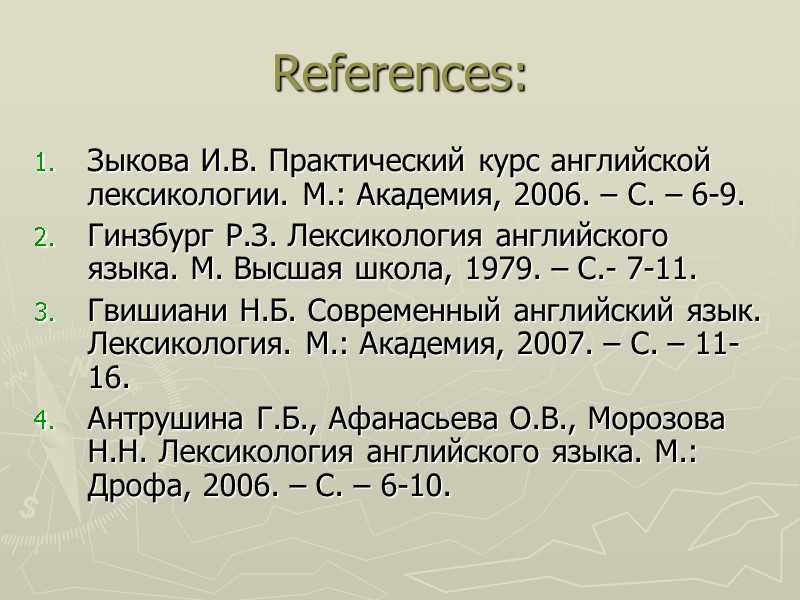
References: Зыкова И.В. Практический курс английской лексикологии. М.: Академия, 2006. – С. – 6-9. Гинзбург Р.З. Лексикология английского языка. М. Высшая школа, 1979. – С.- 7-11. Гвишиани Н.Б. Современный английский язык. Лексикология. М.: Академия, 2007. – С. – 11-16. Антрушина Г.Б., Афанасьева О.В., Морозова Н.Н. Лексикология английского языка. М.: Дрофа, 2006. – С. – 6-10.
36344-introduction_lexicology_as_a_part_of_linguistics.ppt
- Количество слайдов: 20

